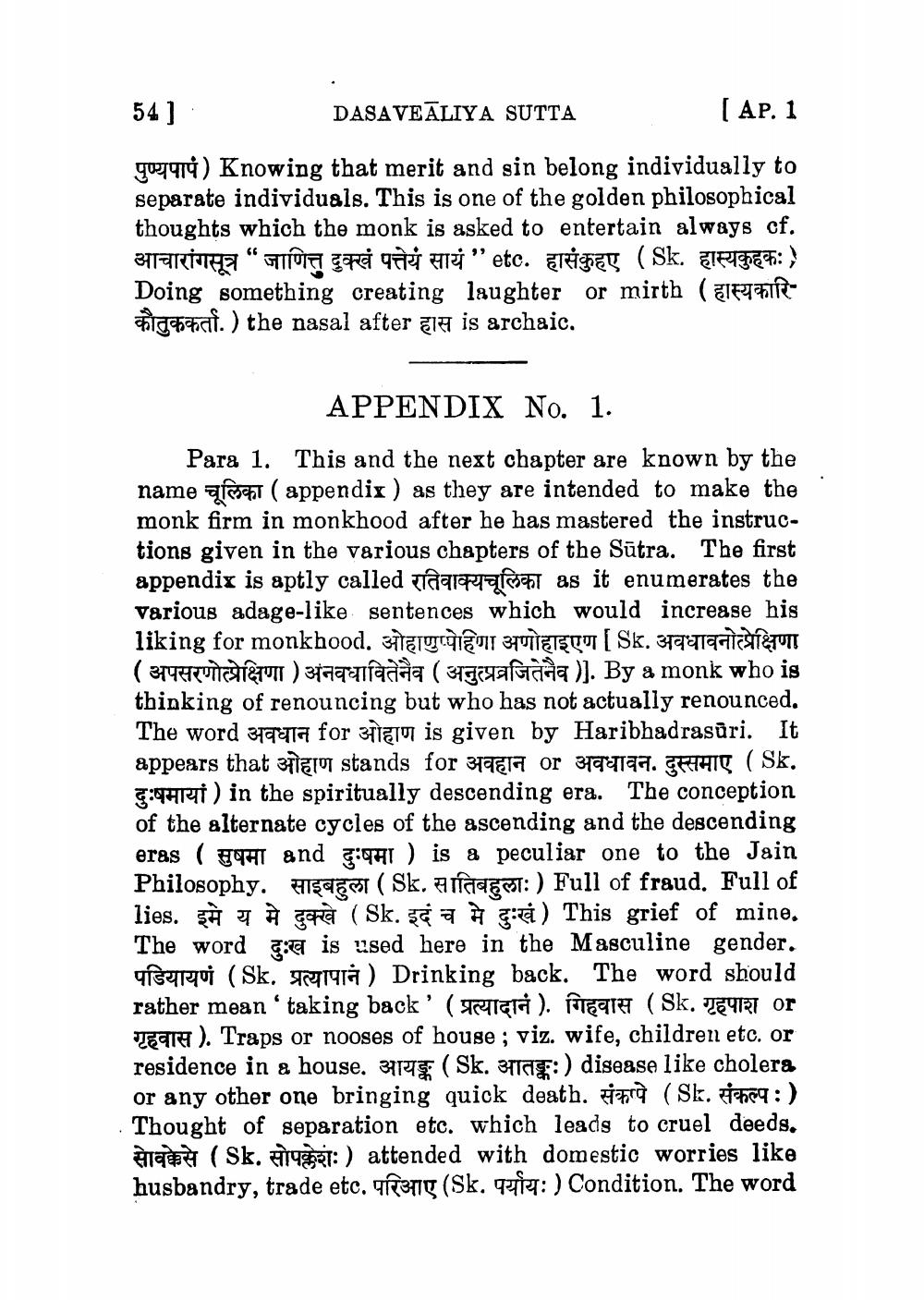________________
54]
DASAVE ALIYA SUTTA
[ AP. 1
go) Knowing that merit and sin belong individually to separate individuals. This is one of the golden philosophical thoughts which the monk is asked to entertain always cf. आचारांगसूत्र “ जाणित्तु दुक्खं पत्तेयं सायं ” etc. हासंकुहए ( Sk. हास्यकुहकः ) Doing something creating laughter or mirth ( कौतुककर्ता.) the nasal after हास is archaic.
APPENDIX No. 1.
Para 1. This and the next chapter are known by the name (appendix) as they are intended to make the monk firm in monkhood after he has mastered the instructions given in the various chapters of the Sutra. The first appendix is aptly called as it enumerates the various adage-like sentences which would increase his liking for monkhood. ओहाणुप्पेोहिणा अणोहाइएण [ Sk. अवधावनोत्प्रेक्षिणा ( अपसरणोत्प्रेक्षिणा ) अनवधावितेनैव ( अनुत्प्रव्रजितेनैव )]. By a monk who is thinking of renouncing but who has not actually renounced. The word अवधान for ओहाण is given by Haribhadrasūri. It appears that ओहाण stands for अवहान or अवधावन. दुस्समाए ( Sk. दुःषमायां ) in the spiritually descending era. The conception of the alternate cycles of the ascending and the descending eras ( सुषमा and दुःषमा ) is a peculiar one to the Jain Philosophy. साइबहुला ( Sk. सातिबहुला : ) Full of fraud Full of lies. इमे य मे दुक्खे ( Sk. इदं च मे दुःखं) This grief of mine. The word is used here in the Masculine gender. पडियायणं ( Sk. प्रत्यापानं ) Drinking back. The word should rather mean — taking back' ( प्रत्यादानं ). गिहवास ( Sk. गृहपाश or ). Traps or nooses of house; viz. wife, children etc. or residence in a house. आयङ्क ( Sk. आतङ्कः) disease like cholera or any other one bringing quick death. संकापे ( Sk. संकल्प :) Thought of separation etc. which leads to cruel deeds. सोवक्केसे ( Sk. सोपक्लेशः ) attended with domestic worries like husbandry, trade etc. eng (Sk. :) Condition. The word




